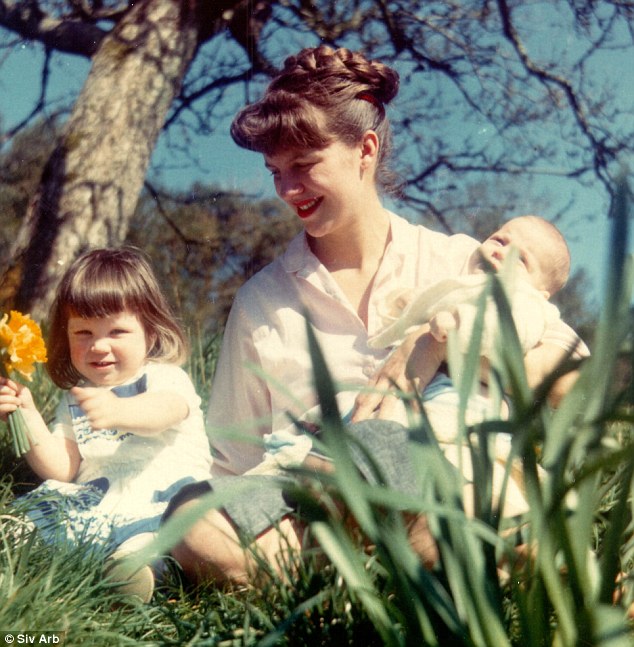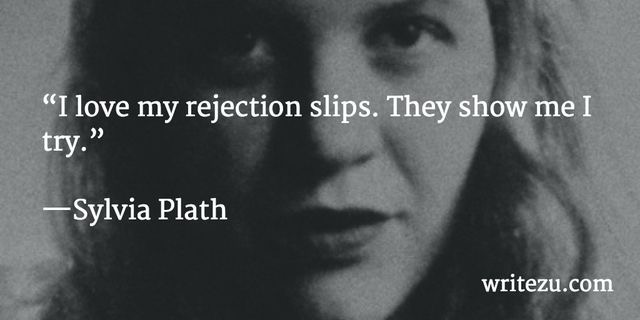An Excerpt from ‘Capriccio”
The following extract from my novel ‘Capriccio’ is a fictional recreation of the last day of Sylvia Plath’s life. In this version I haven’t named her, partly to comply with a request from the Hughes estate, and partly to see if it works. What do you think, Dear Readers? Does it work?

The moon has nothing to be sad about,
Staring from her hood of bone.
She is used to this sort of thing.
Her blacks crackle and drag.
– from ‘Edge’ by S.Plath
EDGE
Rubbing her hands together, desperate for warmth, the young mother dragged a blanket from the empty cot nearby, to drape over her shoulders. Her two children were still sleeping in this hour before dawn. It took a supreme effort of will to shuffle to the little table under the bedroom window that served as a desk. She opened her journal with stiff aching fingers, and reached for her fountain pen
The water’s frozen in the pipes, and the blood’s frozen in my veins. My hands are stiff and blue with cold as I write this. It’s the worst winter London has known in over thirty years. Thirty years; my age last birthday and what have I to show for it? A failed marriage, a few poems, and a mediocre novel. At least I didn’t publish it under my own name. Mother would be mortified if she knew that monster was based on her.
There’s nothing left. Only the children – my two roses. They’ll surely be better off without me. How it breaks my heart to see them, both asleep now, thank God, curled up into their little balls in the bed we needs must share, just to keep warm. I’m seizing these precious moments to write, before they wake. As the temperature drops so the words, bitter words, are pouring out of me on these dark mornings. I’ve a feeling these new poems are the ones that will make my name, make Mother proud of me. I’m putting them all together in one collection, a small book but a powerful one.
There was just enough light to see the loose page with the draft of her last poem, Edge, its crossed out lines and scribbled notes rebuking her.
She looked again at the title page of her collection, with its simple dedication to Fleur and Timothy. The words were wrung out of her in these early mornings, when she woke to the blackness, after the sedative Dr Horder prescribed had worn off. These hours before dawn, while the children were still mercifully asleep, were hers alone. At first, in the months after He had left her, the words had flowed out of her in those silent ghostly mornings at Court Green. It was as if she needed to fill the gaping wound his absence made inside her with these new, angry, savage poems.

It was almost six now, yet still dark outside. She switched on the reading lamp; it shone its yellow light on the black ring binder on her writing table. Stretching and shivering at the same time, she closed her eyes to fight the blackness that always engulfed her on waking, drawing her in and down, deeper than sleep. Let me die, the voice in her head whispered again. There was no stopping it.
With a sigh, she crossed out the working title for her collection, Daddy, and replaced it with Ariel. She would call on the power and life force of her new title poem, and through it banish the death-voice that woke her every morning.
As the weak light filtered into the bedroom, a chesty cough from the bed interrupted her writing. She laid down her pen, and rose stiffly. Little Timothy was coughing in his sleep, his cheeks pale, and snot blocking his tiny nostrils. At least the worst of the fever had left both the children, leaving them weak and irritable. The stench from her baby’s urine-soaked nappy hit her nostrils, and she turned to fetch a clean one from the diminishing pile beside the bed.
Fleur as usual sat straight up, wide awake and ready for the new day. Ignoring her baby brother stirring beside her, she lifted her arms to her mother.
‘Mummy, will Daddy come and take us to the zoo today?’
‘Not today, my darling.’ She hugged her daughter, burying her face in the child’s soft hair. ‘It’s still snowing outside. We’ll read stories together and you can help me make pancakes for breakfast. And tomorrow, a new Nanny’s coming to help Mummy, won’t that be good?’
She forced her voice up higher, striving for a semblance of cheerfulness, for Fleur’s sake. But inside, her heart was hollow; there was no room for hope any more. Let me die,the voice echoed once more. She closed her mind to it, as she’d done again, and again. Only the children mattered.
Fleur, once out of bed, and seemingly oblivious to the cold, ran to the toy box and started undressing her favourite doll, mimicking what her mother was doing with Timothy.
‘He smells,’ Fleur whined, holding her nose as Tim’s nappy as peeled off. Her mother put the sodden cloth in the large metal bin. With limited water for washing, the bin was filling up, and the stench was becoming overpowering. It mingled with that of her own unwashed body, its female smells sickening her.
She looked at the laundry basket in the bedroom, overflowing with the children’s clothes, and thought of the dishes piling up in the sink downstairs. Not only was there no hot water, now a mere icy trickle came through the frozen pipes. She’d used what little water she’d salvaged in a bucket, to wash the children. Now, when the bucket was near to empty, she kept a damp flannel close at hand to wipe sticky faces and fingers
Thank goodness I thought to fill the kettle and pots with water yesterday. I can warm the kitchen up by lighting the stove. At least they haven’t cut the gas off yet.And again she heard the voice in her head: Let me die,as she saw her body perfected, still, at peace at last.
‘Mummy, I’m hungry.’ Fleur pulled at her mother’s dressing gown. Shaking herself out of the blackness with a huge effort, she lifted Fleur to her and kissed her forehead, cheeks and nose. ‘Then let’s get Tim and you dressed, and we’ll go downstairs to make those pancakes.’
At the stove, Fleur pulled up a kitchen chair and climbed up to stand alongside her mother. Their heads were almost at the same level. The little girl watched as an egg was broken into the glass mixing bowl. With great concentration, the little girl passed her mother another from the open carton. As the beaters broke the yolks and whites into a golden froth, Fleur put her little hand on her mother’s, feeling the vibration linking the two of them. Suddenly the satisfying sound of the beaters stopped.
‘Mummy, why you crying?’ the child asked, gazing wide-eyed as the whirring stopped mid-beat, a long string of half-mixed egg hanging from the metal beaters.Her mother made no sound,while her face was contorted. Fleur took the handle and tried to turn the twin beaters in the gluey mixture, her eyes firmly averted from that frozen face.
As Fleur began to wind the handle, the bowl tipped and in a second the floor was awash with sticky yellow fluid. The strange howl from her mother’s mouth sounded to Fleur like the wolves in the nearby zoo. Timothy joined in the sound from his baby seat, setting up a wail of his own misery.
Scooping up Timothy up, she held him close to her breasts, months ago emptied of life-giving milk. She inhaled the scent of his scalp, still baby-sweet despite the lack of baths. The mess of beaten egg lay congealing on the floor. She stared at it blankly.
‘Mummy, Mummy, eggs gone! Me put them back in?’ Fleur began to sob now, at the loss of her special breakfast, and the noise of her brother’s wailing. ‘I w-want p-p-pancakes.’
‘Come, love, I have a much better treat for you.’ With her free hand, the mother reached up to the top shelf of the pantry where some Christmas treats were still hidden. She found a packet of mince pies almost forgotten since December, but well preserved by the icy weather. ‘Let’s go curl up on the sofa, and Mummy will read stories to you both, while we eat our treats. Go pick your favourite book, Fleurkin, while I make up Tim’s bottle.’
Fleur stopped crying. She ran to the bookshelves in the sparsely furnished lounge room. Climbing on to the plump cushions of the old brocade sofa, she arranged four picture books in a pile. Snuffling a little, she waited for her mother and brother to join her.
Categories: CAPRICCIO, SYLVIA PLATH, WOMEN WRITERS


Really great Dina. Thanks for including me among your contacts. Sylvia and Ted were ill-starred partners.
LikeLiked by 1 person
Dina this excerpt is very evocative. The tragedy of her circumstances and loss is palpable, especially the pancake making image, the final culmination of desperation.
LikeLike
Thanks Gaye. Wondered if it worked without once naming S-just called her ‘she’ or ‘the mother’. Her estate asked me to change all names so I made her ‘no name’.
LikeLike
This excerpt is very powerful- the atmosphere is created beautifully, and draws me in by the intensity of its despair.
LikeLike